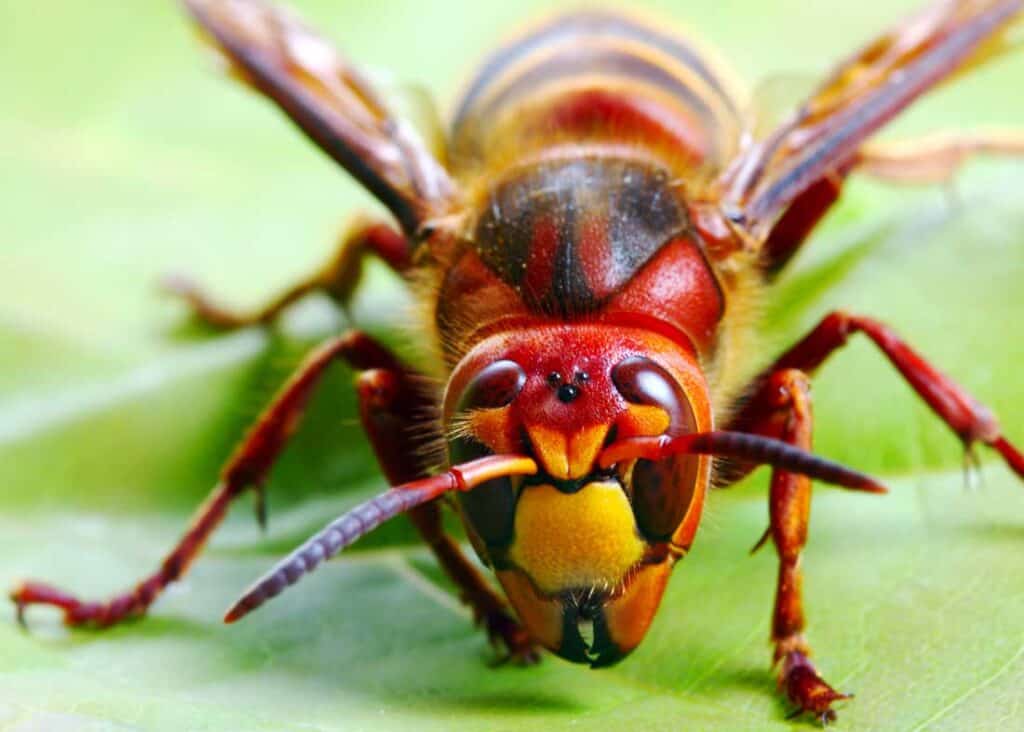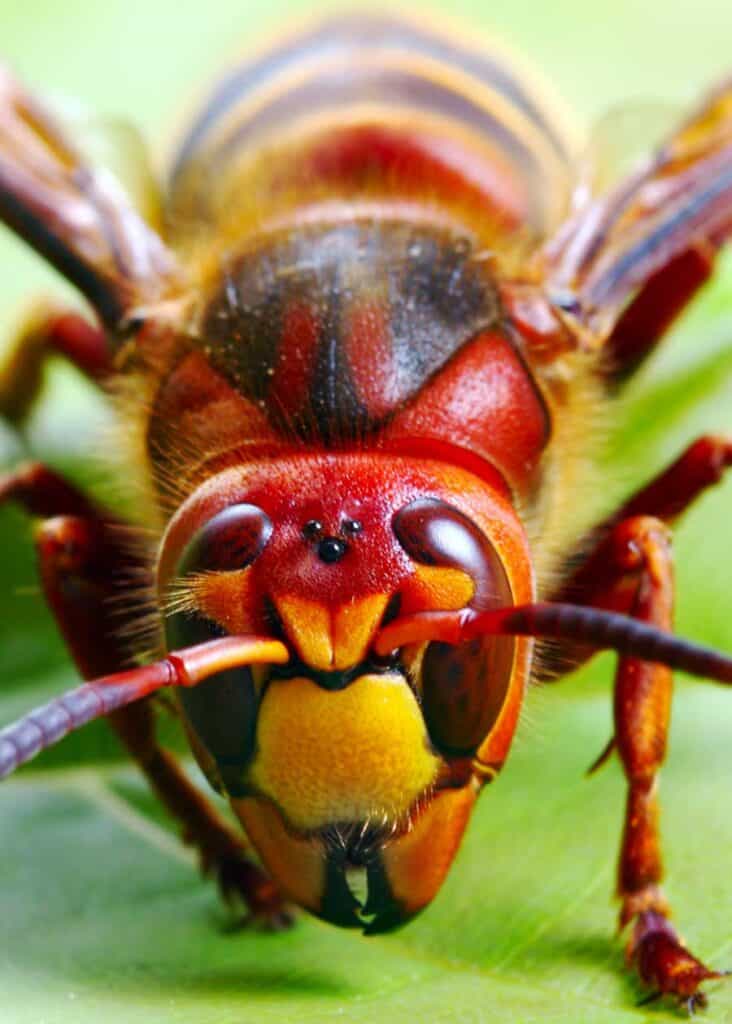Hornets are one of many flying insects that you might see outside. Though they are similar to bees, there are many differences. Hornets love to eat honey. Do hornets make honey?
Hornets, like most wasps, don’t make honey. Hornets do consume nectar but don’t produce or store it as honey. Hornets love honey and the bees that make it. Hornets will invade a beehive and consume both the stored honey and the worker bees inside.

Table of Contents
Do Hornets Make Honey?
You should know that hornets do not make honey.
Hornets belong to the same family as wasps. As some wasps make honey, you might find it confusing that hornets do not.
While hornets will sometimes consume plant nectar, they don’t break down those substances to make honey.
What do Hornets Eat?
Hornets are predators and scavengers. They eat small insects and spiders, including crickets, caterpillars, and flies.
Hornets will also consume fruit sugar on rotting fruit.
In the fall, we see hundreds of hornets and other wasps, feeding on the fallen apples under our trees. Once the apple peel breaks or splits, it attracts them.
And hornets will also eat honey, made by local honey bees.
Hornet and Honey Bee Connection
To make things even more confusing, hornets love honey.
They get honey from the bees that produce it.
Honey bees mix their saliva with pollen and nectar to form honey. They then apply the mixture to the walls of their hive to help other bees get the food that they need. The queen in the nest will eat the honey delivered to her and also give it to her larvae.
How Do Bees Protect Themselves from Hornets?
Hornets can be more than four times the size of ordinary honey bees and can easily attack them.
It takes less than 10 hornets to kill all of the bees found in a hive and consume their honey.
A single hornet can kill up to 40 bees in just 60 seconds.
A study in Japan found that honey bees learned how to protect their hives from these insects.
Hornets use scouts that search for hives. When the scout finds one, it releases a pheromone to tell their group where to attack.
Japanese honey bees learned how to detect the scouts. They will send out an alert that causes other bees to rush to her defense.
The group of hundreds will form a ball around the invading hornet. They begin vibrating, raising the temperature to over 115°F (46°C) until the hornet cooks to death. Hopefully, for the honey bees, the invader will die before it can signal the colony.
According to National Geographic, Japanese honeybees can withstand temperatures of 118°F, and the Japanese giant hornet can withstand temperatures of 115°F. Not much room for error, only a 2°F difference!
Everywhere Wild
Because hornets are a type of wasp, you’ll find many articles using these terms interchangeably. This post on Quora has some good information but mistaken labeling.
5 Facts About Hornets
There are other things to know beyond hornets’ lack of honey making.
- Hornets produce a type of venom that is potentially deadly to both other insects as well as humans. As they do not lose their stingers in an attack, they can sting as many times as they want and inject venom with each sting.
- Giant Asian hornets are the largest hornets. They have bigger bodies as well as more powerful venom and a large stinger. First spotted in Japan, they spread to different parts of Europe and slowly worked their way around the world. Giant Asian hornets can grow to nearly five times the size of other hornets.
- Hornets are a natural protein source that makes them a popular food in some regions, especially Japan. Japanese farmers grow hornets specifically for eating and often sell the larvae, which many eat raw. They will also deep dry hornets to give them a crispy exterior.
- There is even an energy drink that uses hornets as an ingredient. Fans of the drink claim that the addition of the insect gives it a sweet and unique flavor.
- There are also several hornet festivals held in the United States and other regions. Many of these festivals feature dishes made from hornets.
More reading: Bee vs Wasp vs Hornet (15 Differences / Similarities)

More Reading: Do Bumble Bees Make Honey? Key Differences
Did you know? What Eats Wasps? 37 Natural Predators
Hornets and Honey
Though hornets love honey, they are unable to make it themselves. Most varieties get honey from honey bees.
They send out scouts to find nearby hives and wait to smell the pheromones she releases, which signals other workers to help with her attack. A small group of hornets can decimate a beehive. Hornets not only eat honey but will eat the bees that make honey, too.
- About the Author
- Latest Posts
Bryan Haines is a co-founder and writer at The Buginator. And is working to make it the best resource for taking back the outdoors from biting, stinging pests.
He also blogs about travel at Storyteller.Travel and photography at Storyteller Tech. Bryan is a partner at Storyteller Media, a publishing company he runs with his wife, Dena.
